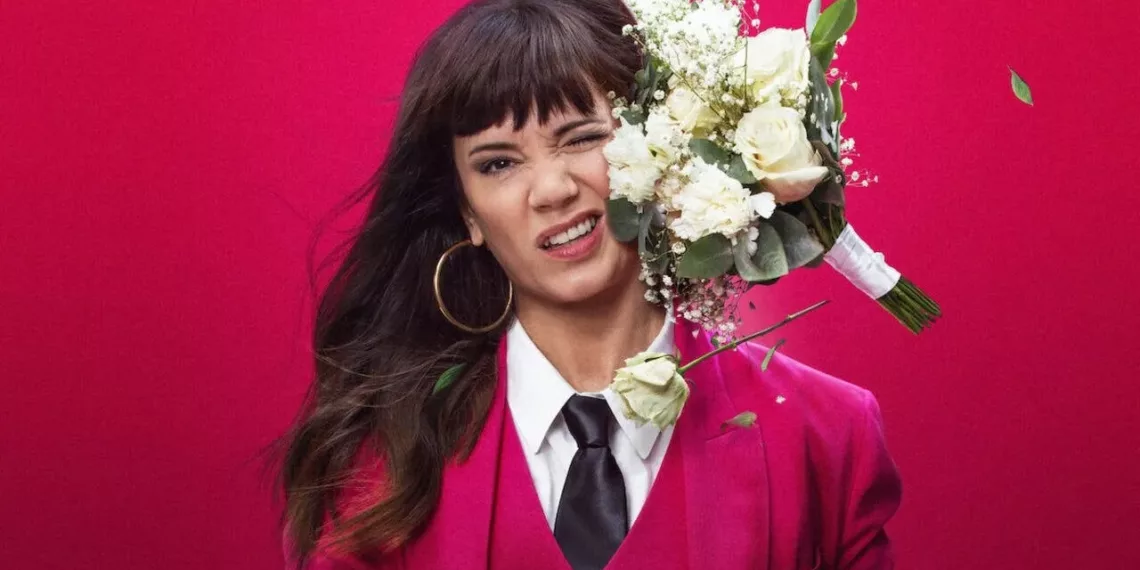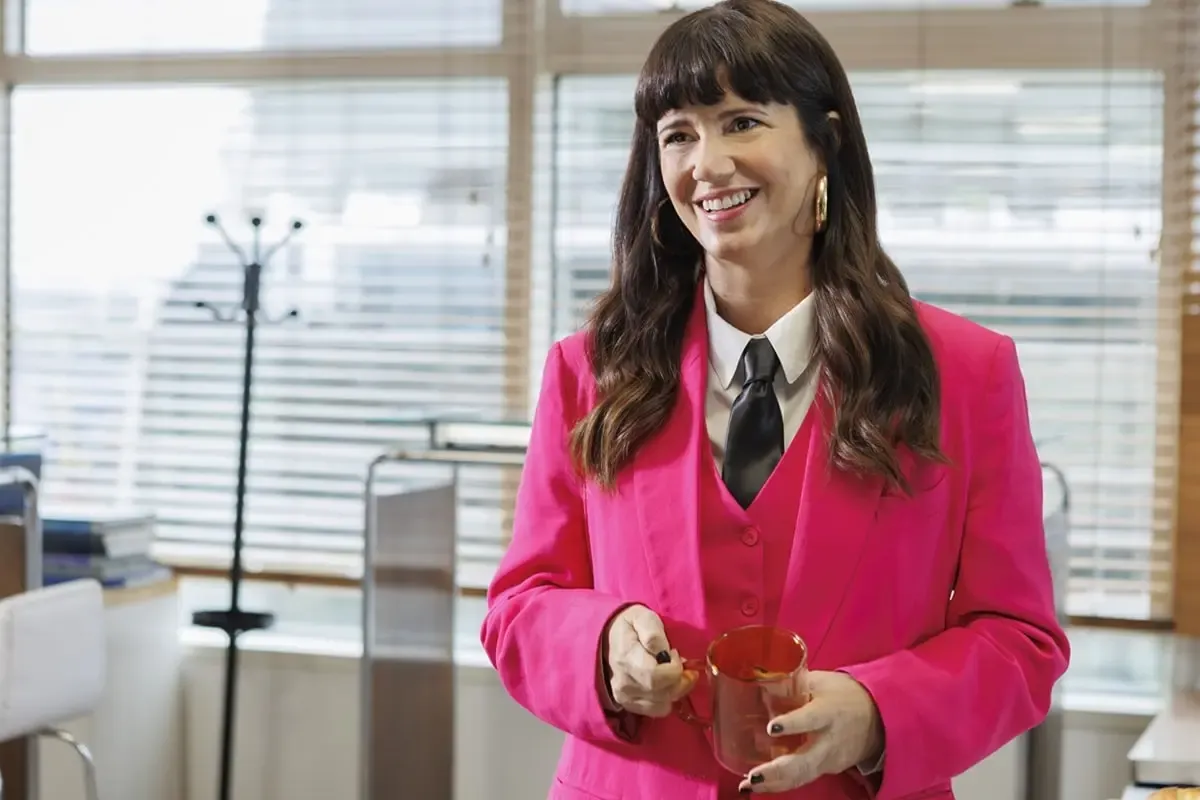Envidiosa, the latest Netflix original from Argentina, introduces us to Vicky, a woman on the brink of an identity crisis as she approaches her 40th birthday. Long defined by the relationships in her life, from her father who abandoned her as a child to her boyfriend of 10 years, Vicky finds herself adrift when that longtime romance comes to an end. With many of her friends now married with kids while she remains single, Vicky grapples with feelings of envy that threaten to consume her.
Yet underneath her jealous reactions lies a deeper longing for fulfillment and purpose that has long gone unmet. As a young girl forced to take on responsibility beyond her years, Vicky dreamed of the ideal family life she never had. Now in her late 30s and fresh out of a major breakup, those dreams feel farther out of reach than ever. Lost and lashing out at a world that has repeatedly let her down, Vicky descends into a chaotic period of bad decisions.
Helmed by director Gabriel Medina, Envidiosa uses humor and pathos to depict one woman’s messy journey towards self-acceptance. Through relatable yet flawed characters, the show shines a light on societal expectations and how easy it is to find worth through others instead of within.
By peeling back the layers of Vicky’s psyche, Envidiosa offers an insightful exploration of rising above past hurts to discover your true self. For anyone who has struggled with insecurity or the pressure to attain certain milestones, this Netflix comedy is well worth the watch.
Peeling Back the Layers of Vicky
At the core of Envious lies Vicky, a complex character navigating personal struggles we’ve all faced. Upon first glance, her actions seem brash and her reactions jealousy-fueled. Yet underneath lies a woman striving for fulfillment after past hurts shaped her worldview.
Abandoned by her father as a child, Vicky took on responsibility early. This trauma lingers as she hits 40, pressured by society’s expectations. Sacrificing her career to support an ex for 10 years and seeing him swiftly move on cuts deep. It’s no surprise relationships and status dominate her thoughts.
Still, mere jealousy doesn’t fully capture Vicky’s psyche. As her therapist gently prods memories and insecurities, cracks emerge in the armor. We sympathize with a life on pause, envisioning the perfect family remaining out of reach. It’s this vulnerability Siciliani brings that elevates flaws to humanness.
Her comedic timing draws chuckled recognition from our inner critic. Subtleties in speech and gesture reveal emotional wounds beneath brashness. Even in absurd hijinks, Siciliani ensures we root for Vicky’s growth. Without this nuance, envy may sour our views rather than spark self-reflection.
Supporting characters flesh out Vicky further. Friends appear to have ideal lives under Instagram filters, unaware of private plights. A sister shares an understanding of past hardships through caring concern. And Matias sees beyond anger to the caring woman within, reflecting Vicky’s ability to trust and love.
While laugh-out-loud moments arise, the heart lies in complex layers underneath. Through deft performances and balanced narrative, Envious unpacks insecurity’s roots with empathy. It’s a journey many relate to, of facing fears and insecurities to embrace life’s beauty in each moment.
Life’s Twists and Turns
Envidiosa tackles complex issues with a light comedic touch. At its heart lie universal themes around societal norms and the challenges of adulthood. As Vicky hurtles towards 40, she faces a crisis precipitated by others’ milestones yet symptomatic of deeper-rooted insecurities.
Through her story, the show spotlights society’s unrealistic expectations. We laugh at yet relate to Vicky’s envy, born from constant social media updates framing life as a series competition. In finding fulfillment, do we inevitably surrender individuality to norms around marriage and children? Medina approaches such questions subtly yet poignantly through humor and pathos.
Beyond relationships, deeper issues emerge around mental health, feminism, and self-worth. Vicky’s therapy scenes, laden with laughs, peel back trauma, shaping her views. Freed from diagnoses, her struggles highlight life’s twists and our resilience. As women especially face pressure, her journey advocates loving ourselves before others’ approval.
But healing is not simple. Flashbacks reveal apathy’s roots in her father’s abandonment. Regression is human; growth is nonlinear. The cast brings nuance, with supporting characters countering assumptions through their own imperfect realities. In this way, Envidiosa sparks meaningful reflection on society and psychology through the everyday struggles we all face.
With deft writing, direction, and performances, the show balances addressing timely issues with humor and heart. It reminds us that however life unfolds externally, within lies strength, and as hard as the path, focusing inward leads to accepting life’s unexpected shape with grace.
Bringing Vicky’s World to Life
Envidiosa immerses us in Vicky’s Buenos Aires through stylized visuals. Cinematography paves empathetic glimpses into her life. Scenes flow with handheld realism, as if we peer beside Vicky through her journeys.
We smile, recognizing settings—her chaotically cheerful apartment, friends’ familiar spaces. Production design grounds absurdity in everyday identity. Bold costumes show Vicky’s flair amid struggles, cementing her humanity.
Medina’s direction draws out gold. From climactic slapstick to subdued solace, he elicits belly laughs and quiet reflexion. One scene sees Siciliani puffing and wheezing up flights, comic discomfort tempering envy’s roots in pain. Her physicality transforms routine into art.
Memorable too are soothing soundtrack strings amid turmoil. Notes rise and fall with Vicky, mood lifting reality from bleakness. Songs cue nostalgia for stages unchanged, stages yet unfolding.
Together, these elements breathe vibrant authenticity into a complex character study. Visuals welcome us openly into Vicky’s life, letting introspection fuse with joy at human perseverance. In a changing world, Envidiosa finds familiarity and hope where they have always lived—within.
Vicky’s Chaotic Yet thoughtful Journey
Across twelve half-hour episodes, Envidiosa follows Vicky’s tumultuous year after her breakup. Each episode finds her making another regrettable decision amid envy and loneliness. Yet underneath the madcap adventures lies a deeper quest for self-understanding.
Adopting aserialization common to American sitcoms, Medina keeps viewers tuned in weekly as Vicky endures one awkward blind date or invasion of her ex’s home after another. This structure maintains laugh-out-loud absurdity throughout her antics. Still, certain repetitive plotlines around possessive suitors feel stale.
When the show shifts its focus, beautiful moments emerge. Dramatic scenes sketching Vicky’s backstory or therapy sessions resonate with subtlety. Here audiences find the humor takes a backseat to humanity. Siciliani shines, conveying emotional depths below brash surface behavior. It’s a testament to her talents that Vicky remains lovable despite continual poor choices.
At its best, Envidiosa strikes the delicate balance between laughs and life lessons. Trimming unnecessary storylines would serve to tighten this balance further. But the show succeeds in using one woman’s clumsy journey to spread empathy. Ultimately, it’s a comedy about facing fears and insecurities to find inner strength—a message we can all benefit from remembering.
Vicky’s Resonant Voice
From iconic telenovela heroines to modern streaming favorites, Argentina gifted the world a tradition of nuanced comedies. In Envidiosa, we recognize portrayals spanning generations—yet find a unique mirror in Vicky.
Her struggles strike the chords of a nation long-bound by conservative mores. Medina showcased timely tensions as Vicky rebels against prescribed paths, instead seeking purpose within. He buoyed societal introspection through both laughter and empathy.
On screens and screens alike, discourse flourished. Memes playfully skewered yet appreciated Vicky’s journey from love-hungry days to self-love. Comments shared and debated societal duties and womanhood with passion yet open ears. Amid division, Vicky’s storyline encouraged common ground.
Her legacy ensures complexity in female leads before and beyond. Where constraint once reigned, expansive stories emerge, granting fuller lives beyond a man. And though Vicky stirred rage in some, her humanity inspired countless to compassionate reflection on journeys not their own. Her ripples changed conversation forever.
As television evolves, so endure timeless tropes—yet characters like Vicky pave progress. Her resonant voice echoes hope that future generations portray multifaceted lives and love freely chosen. And that we listen with grace.
Vicky’s Resonant Journey
Overall, Envidiosa tackles heavy topics with grace through Siciliani’s nuanced lead. It shines brightest exploring Vicky’s psychology beneath bravado, emphasizing self-acceptance matters most. While some storylines feel less impactful, Medina ensures laughter and heart accompany this cultural commentary.
Vicky’s chaotic adventures entertain, yet deeper resonance arises from acknowledging life’s unpredictability. Her struggles highlight society’s high demands and how easily inner peace flees external pressures. In questioning norms through humorous missteps, the series promotes pursuing purpose on our own terms.
Argentina spawned sitcom legends through colorful leads. Vicky joins these resilient women, grounded yet blazing trails. Her story resonates globally in showing humanity beneath flaws and strength found within. For these lessons on facing fears and insecurity with patience, Envidious remains rewatchable.
Most of all, this comedy reminds us that finding life’s meaning lies not in others’ eyes but in our own. Vicky’s journey encourages embracing life’s surprises with compassion—for ourselves and those still walking similar paths. Her impact will echo for nurturing such introspection with humor, heart, and hope.
The Review
Envious
Griselda Siciliani delivers a nuanced, humane performance that anchors this Argentine sitcom's exploration of society's pressures and one woman's journey toward self-acceptance. While not without flaws, the series skillfully balances laughs with meaningful social commentary and intimacy into flawed protagonist Vicky's psychology. Directors craft memorable scenes eliciting emotion and mirth. Overall, Envidiosa entertains with a moving depiction of resilience as Vicky, and perhaps audiences, learn life's beauty emerges from within regardless of what joys or hardships each day brings.
PROS
- Nuanced central performance by Siciliani carries complex character arc
- Address the impact of societal expectations on mental health in an insightful way.
- Memorable direction elicits both comedy and poignant drama.
- Balances laughs and heart throughout the run without losing message
- Entertains while prompting meaningful introspection
CONS
- Pacing of middle episodes feels sluggish at times.
- Some repetitive jokes and B-plots detract from momentum.
- Concludes Vicky's journey somewhat ambiguously.
- Presentation of therapy scenes occasionally undermines profession
- Relies on familiar sitcom tropes without breaking new ground.





















































